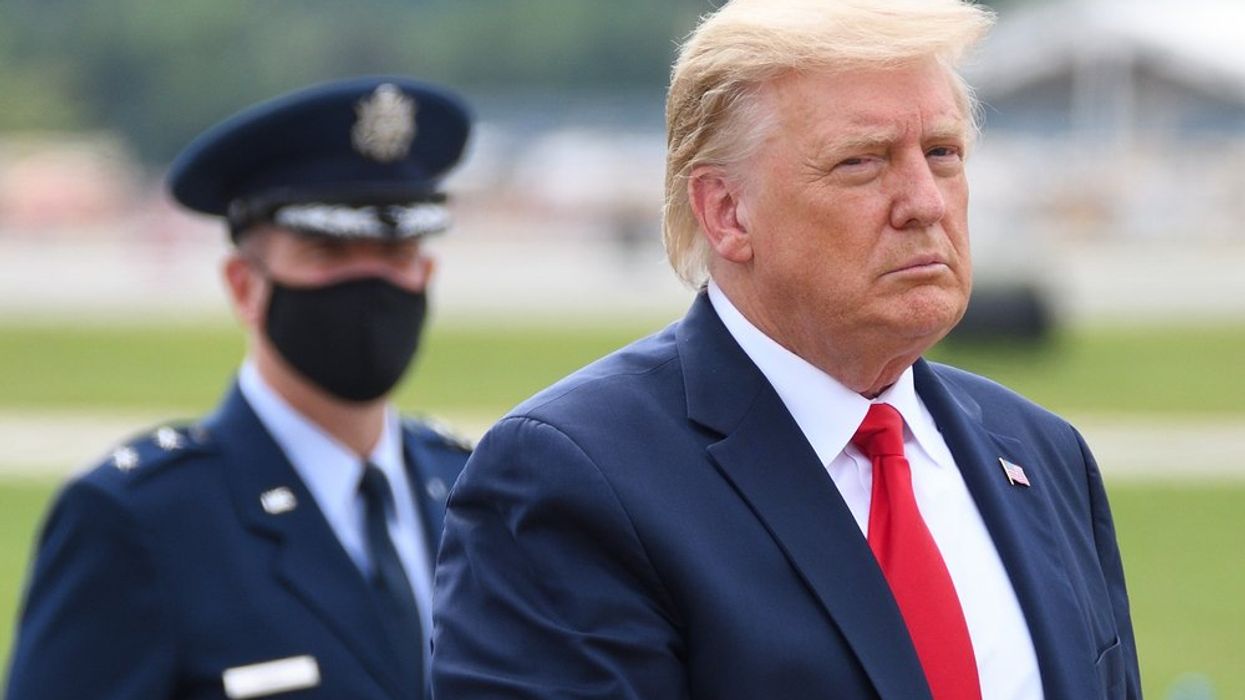Judge just struck down Trump’s 'inflammatory' motion to exclude Jan. 6 riot references from trial


US District Judge Tanya Chutkan just handed former President Donald Trump's legal team a major loss ahead of his election interference criminal trial in Washington, DC court.
In his motion, Trump had argued that any references to the January 6, 2021 attack on the US Capitol should be considered out of bounds, as it could possibly influence the jury to act in a prejudicial manner. But according to Politico legal correspondent Kyle Cheney, Judge Chutkan said Trump's motion was full of "inflammatory and unsupported accusations" and that the 45th president of the United States "fails to cite even one example" of how media coverage of the indictment would taint the jury pool.
"When trial begins, the court will also take steps to screen from the jury any irrelevant and prejudicial material that either party seeks to introduce. Moreover, before the jurors deliberate, the court will instruct them on the actual charges and the evidence they may consider in their deliberations," Chutkan wrote in the three-page decision. "For these reasons, Defendant's Motion to Strike Inflammatory Allegations from the Indictment... is hereby DENIED."
POLL: Should Trump be allowed to hold office again?
Special counsel Jack Smith fiercely opposed that motion, in a filing of his own, indicating that the bulk of his prosecution against Trump in the DC trial would involve the January 6 riot.
"Although the defendant knew that the certification proceedings had been interrupted and suspended, he rejected multiple entreaties to calm the rioters and instead provoked them by publicly attacking the Vice President," the filing read. "And instead of decrying the rioters’ violence, he embraced them, issuing a video message telling them that they were 'very special' and that 'we love you.'"
Smith has charged the 45th president of the United States with four felony counts relating to the January 6 insurrection: conspiracy to defraud the United States, conspiracy to disrupt an official proceeding, obstruction of and attempt to obstruct an official proceeding and conspiracy against rights. His trial date in Chutkan's court is slated for March 4, 2024.
If Trump is found guilty on all four charges and sentenced to the maximum penalty under federal statute, he could face 55 years in prison. However, because that conviction would happen in federal jurisdiction, Trump theoretically could — if elected president in 2024 — issue a presidential pardon to himself.